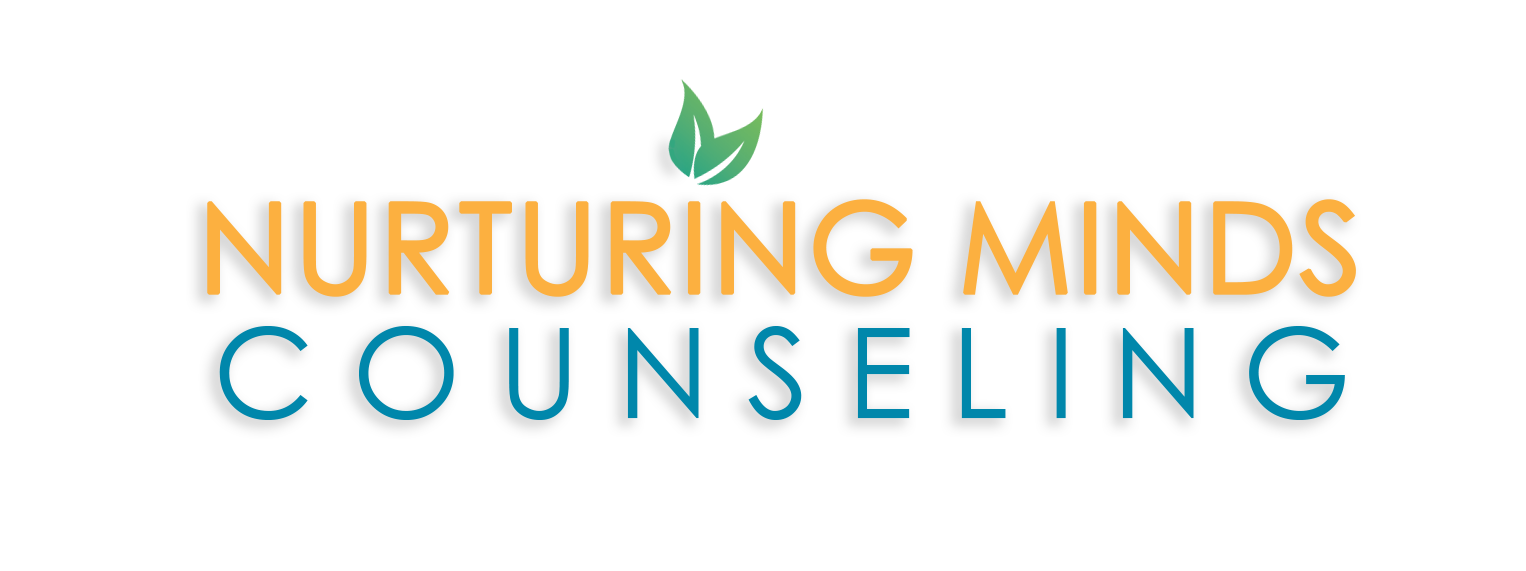Hey! My name is Diana Garcia, and I’m a Licensed Mental Health Counselor in Florida owner of a Private Practice called Nurturing Minds Counseling.
Do you have a nagging feeling that you might be a perfectionist? Or do you already recognize that you have some perfectionist tendencies and have asked yourself, “Is being a perfectionist a weakness?” Read today’s blog to learn more about 5 characteristics of perfectionist and start to distinguish whether they are helpful or when you can definitely identify being a perfectionist as a weakness.
Read Blog : “Is Being a Perfectionist a Weakness?”
What is Perfectionism?
A desire and drive to push yourself to achieve certain outcomes based on self-imposed high standards. Typically, you associate your self-worth with these achievements and can be self-critical if you’re not meeting these standards.
There’s some debate whether the characteristics associated with clinical perfectionism are at all helpful. Some researchers believe that perfectionist as a weakness is always the case. In contrast, others argue that sometimes perfectionism can be useful and adaptive.
I tend to believe that sometimes your perfectionist tendencies have served you well. But at other times, these same drives can become unhelpful and detrimental to your overall well-being.
5 Characteristics of Unhelpful Perfectionism
I will go over 5 processes of unhelpful perfectionism and describe what it looks like for you to start understanding how this can manifest in your daily life. This is adapted from some trainings from Jennifer Kemp, a psychologist that focuses heavily on perfectionism. If you prefer to watch a video, check out the video below.
Watch Video: “Traits of a Perfectionist”
Characteristic 1: Extremely High & Inflexible Standards
You have extremely high and rigid standards for yourself. So, what I mean by rigid is that even if there’s room for flexibility, or most likely you should adjust your standards, you don’t. For example, let’s say you have a goal of completing a work presentation but you unexpectedly got injured and had to take some time off. This would be a clear indication that you should adjust your standards and expectations for yourself but instead you try to complete the presentation on your time off while you should be focused on recouping.
These self-imposed expectations can drive you to constantly look for the next gold star, achievement, 100 percent, promotion, whatever that looks like – or even just personally the next kind of recognition that you’re doing well. What’s actually counterintuitive about these impossible to meet standards, that even if you do momentarily meet them, you just end up raising the bar. It’s a sense of nothing’s ever enough.
Now, you might not recognize that that they are high (since you’re so use to setting unrealistic expectations for yourself), but other’s would definitely agree that that they are unreasonable. Maybe you’ve even gotten feedback from people in your life. On one end having standards or isn’t necessarily a bad thing in and of itself, but when they becomes rigid rules that you have to follow with no room for adjustment regardless of the circumstances, this is when you can say being perfectionist is a weakness.
Characteristic 2: Intense Fear of Failure
Clearly most of us don’t like to fail. I think that’s a given. When I say intense fear, I mean this fear that tends to dominate your behaviors, which will lead to sign number three. Going back to this sign, this can look like a fear of making mistakes. These don’t even have to be big mistakes! It can just be minor mistakes that really don’t feel that significant, but there is still a fear making a mistake.

It can be fear of rejection, on any scale, either from one person, from a potential opportunity or from being rejected from the group (whichever group that is). Or maybe there’s a fear of doing something wrong and being unable to tolerate the uncertainty when you have to decide on something. This can lead to spending a lot of time trying to figure out what the right decision is, overthinking, over planning, asking others,etc.
For instance, let’s say you’re in school and you have a paper but you’re unsure how to proceed or where to start. So instead you spend endless time just focusing on the cover page, the headings, or the margins because you have this intense fear of getting it wrong.
Characteristic 3: Attempts to Avoid Failure
Again, this characteristic is related to number two, but this is going back to what do you do to avoid failure. And recognizing that, even when there is a consequence to engaging in these behaviors, you still engage them.
A classic example is procrastination. A lot of people think procrastination is a time management issue, but it’s actually not! It’s an emotional avoidance issue and avoiding a potential fear that you might fail. If you feel like you might fail, that might also trigger feelings of anxiety or overwhelm. Because of this, you just don’t start the project, or you spend endless hours focusing on the margins or the headings, kind of the insignificant part of the project.
Clearly that there is a consequence to engaging in these behaviors including maybe you don’t ever finish the project and get a bad grade or maybe you literally wait to the last possible moment which just jacks up your anxiety, stress, and angst prior.
Another example of fear of avoiding failure is that you maybe don’t take risks, so you don’t pursue the things that really matter to you. Maybe you get offered a promotion, but the promotion involves way more public speaking, or managing people, or meetings with the bigwigs in the company. Because of this fear of getting it wrong, or this fear of failure, you don’t take the promotion.
Characteristic 4: Highly Self-Critical
You tend to be highly critical of yourself. Thinking about different areas of your life you can be critical about how you perform at work, how you’re doing at home as a parent, a child, a partner. Typically, you notice that you are harder on yourself and you say things to yourself that you would never say to someone else.
This can look like honing in on the things that you’re doing wrong or focusing on past failures. If you’ve messed up in the past your mind will remind you of all the things that you’ve done wrong and have messed up on. Or this can look like when you think about the future, you get really concerned and critical about your entire decision-making process.
A great example of this is when I was recently watching the show Physical on Apple T.V. In that show the character has an internal dialogue that you hear. It’s highly self-critical at times and it starts to internally beat her up, which drives her to engage in behaviors that aren’t helpful for her.
Something important to note is that you can start to learn to really shift your reaction to this critical part of yourself. One resource to check out is this blog that’s part of my Book Therapy Series: Book Therapy: Book 4: Self-Compassion: The Proven Power of Being Kind to Yourself.

Characteristic 5: Negative Consequences
There are some types of long-term negative consequences associated with your perfectionism. Like I mentioned before, I tend to believe that perfectionist as a weakness isn’t always the case. Sometimes these traits can serve you well, which ironically can reinforce these tendencies. The goal of though is to be able to acknowledge when they start to really become unhealthy for you.
You may start noticing long-term negative consequence on your mental health. You might notice an increase in anxiety, depression, body image issues or eating behaviors. Or you notice that your perfectionist tendencies really drive some of the behaviors that negatively impact your mental health.
For instance, maybe you don’t prioritize rest and play. Especially if you’re the type of perfectionist that focuses on the outcome or the next achievement, it’s easy to ignore building in that time for yourself. This can contribute to burnout and/or exhaustion.
You may also notice impacts in your relationships, particularly if some of your perfectionist tendencies show up in your relationship with others. Maybe you expect a lot from others which leads you to feel disappointed or maybe you can be highly critical of others (since you tend to be highly critical of yourself). This can cause some discord or difficulties, especially if you struggle to be flexible with the individuals you’re in relationships with.
Perfectionist as a weakness can show up when it fuels avoidance. You don’t pursue the things that matter to you, you’re afraid to take risks even it’s something that matters to you, or you avoid making decisions. This can look like a decision as minor as starting a new workout routine to whether you should go back to school. Your perfectionism really gets activated either way regardless of the decision.
There can be impacts to your health, whether that means you become too exclusively focused on health outcomes and burn yourself out and engage in unhealthy behaviors, or vice versa. You don’t pursue engaging in health restorative behaviors because you’re afraid of failing or set unrealistic standards for yourself so you’re bound to fail.
The key piece here is that there are some types of negative consequences and, yet these perfectionist behaviors continue. That’s a clear indication that yes, being a perfectionist is hindering you.
How can you get to the point where you can confidently answer No to the question, “Is being a perfectionist a weakness? The first step is recognizing when your perfectionist tendencies influence you to engage in a way that doesn’t serve you.
Next Steps
Check out these resources to start working on your perfectionism:
- Check out this blog, Book Therapy: The Anxious Perfectionist, from my monthly Book Therapy Series.
- To start to build more self-compassion, check out this blog on 3 Components of Self-Compassion.
- If you believe you could benefit from therapy for perfectionism, check out my Individual Therapy Page for more information to get started.
- If you need extra resources and supportive coaching instead of therapy, feel free to explore my coaching business. I’m here to help!
And as always, I encourage you to continue nurturing your mind, body, and soul.
